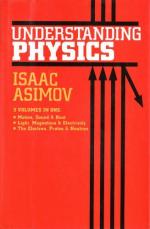|
This section contains 450 words (approx. 2 pages at 300 words per page) |

|
A subatomic particle, a proton (proton means "first" in Greek) is the fundamental unit of positive electricity in the atom, with a charge equal to an electron's negative charge. However, a proton's mass is 1,836 times the mass of an electron. Protons, along with neutrons, constitute an atom's nucleus. In chemistry, the number of protons in a the atom of a particular element defines that atomic number (Z); an element's atomic number is its identity tag. With one exception (hydrogen), chemical elements in their ideal form (excluding isotopes) have an equal number of protons and neutrons. The sum of protons and neutrons constitutes an element's atomic mass. The atomic number and mass of hydrogen, because it has one proton and no neutron, both have the value of one.
Early atomic theory assumed that atoms were indivisible. However, when Michael Faraday (1791-1867) demonstrated, in 1834, that chemical elements were electrical in...
|
This section contains 450 words (approx. 2 pages at 300 words per page) |

|


